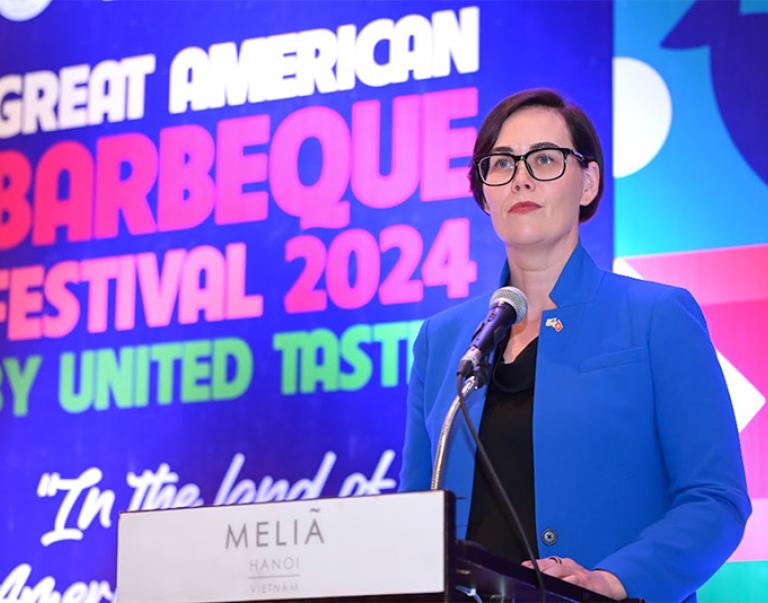WASHINGTON, April 18, 2016 – Agriculture Secretary Tom Vilsack announced today that USDA is soliciting applications for grants to establish broadband in unserved rural communities through its Community Connect program. Community Connect is administered by USDA's Rural Utilities Service and helps to fund broadband deployment into rural communities where it is not economically viable for private sector providers to provide service.
"Through Community Connect and our other telecommunications programs, USDA helps to ensure that rural residents have access to broadband to run businesses, get the most from their education and benefit from the infinite services that fast, reliable broadband provides," Vilsack said. "USDA is committed to supporting America's rural communities through targeted investments in our bioeconomy and renewable energy, local and regional food systems, conservation initiatives and rural development."
USDA plans to award up to $11.7 million in grants through the Community Connect grant program. The grants fund broadband infrastructure to help foster economic growth by delivering connectivity to the global marketplace. The grants also fund broadband for community centers and public institutions.
USDA has invested $160 million in more than 240 projects to bring broadband to unserved rural communities since the Community Connect Program was created in 2002.
In 2009, the Wichita Online telecommunications company in Cooperton, Okla., received a Community Connect grant to build a community center with computers. The center serves as an Internet library for local residents and is used by several government agencies. The sheriff's office and volunteer fire department coordinate their public safety, fire protection and other emergency services from the center. During harvest season, many farmworkers use the computers to communicate with their family members far away. Cooperton is a farming and ranching community between the Slick Hills and Wichita Mountains in Southwest Oklahoma.
The minimum grant is $100,000 for FY 2016. The maximum award is $3 million. USDA announced new rules in 2013 to better target Community Connect grants to areas where they are needed the most. To view the rules, go to https://www.gpo.gov/fdsys/pkg/FR-2016-04-18/pdf/2016-08931.pdf
Prior Community Connect grants cannot be renewed. However, existing Community Connect awardees may submit applications for new projects, which USDA will evaluate as new applications
For more information on how to apply for grants, see page 22567 of the April 18, 2016 Federal Register.
This Community Connect round builds on USDA's historic investments in rural America over the past seven years. Since 2009, USDA has worked to strengthen and support rural communities and American agriculture, an industry that supports one in 11 American jobs, provides American consumers with more than 80 percent of the food we consume, ensures that Americans spend less of their paychecks at the grocery store than most people in other countries, and supports markets for homegrown renewable energy and materials. USDA has provided $5.6 billion of disaster relief to farmers and ranchers; expanded risk management tools with products like to Whole Farm Revenue Protection; helped farm businesses grow with $36 billion in farm credit; provided $4.32 billion in critical agricultural research; established innovative public-private conservation partnerships such as the Regional Conservation Partnership Program; developed new markets for rural-made products, including more than 2,500 biobased products through USDA's BioPreferred program; and invested $64 billion in infrastructure, housing and community facilities to help improve quality of life in rural America.
Since 2009, USDA Rural Development (#USDARD) has invested $11 billion to start or expand 103,000 rural businesses; helped 1.1 million rural residents buy homes; funded nearly 7,000 community facilities such as schools, public safety and health care facilities; financed 180,000 miles of electric transmission and distribution lines; and helped bring high-speed Internet access to nearly 6 million rural residents and businesses. For more information, visit www.usda.gov/results.
#
USDA is an equal opportunity provider and employer. To file a complaint of discrimination, write: USDA, Office of the Assistant Secretary for Civil Rights, Office of Adjudication, 1400 Independence Ave., SW, Washington, DC 20250-9410 or call (866) 632-9992 (Toll-free Customer Service), (800) 877-8339 (Local or Federal relay), (866) 377-8642 (Relay voice users).



